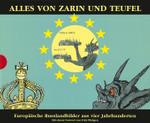- ホーム
- > 洋書
- > 英文書
- > Philosophy
Full Description
An engaging and thought-provoking translation of Paul Ricoeur's earliest work that is essential for understanding his philosophical development
The Reflexive Method Applied to the Problem of God in Lachelier and Lagneau, now held in the Ricoeur Archive in Paris, was a qualifying thesis Ricoeur wrote at the age of twenty-one when he was just beginning his advanced university studies. In it he examines the use of the reflexive method used by two important French philosophers from the nineteenth century, Jules Lachelier and Jules Lagneau. They both sought to develop an "integral metaphysics" that recognizes God as the principle underlying pure, impersonal thought and practical reason, and that requires a kind of philosophical faith. In his conclusion, Ricoeur criticizes their doctrine of God and philosophy of immanence for not being able to deal with the question of transcendence and for its failure to address concrete human existence yet concedes that it may be seen as a first truce in "the internecine war" between faith and reason.
Despite this criticism, Ricoeur later maintained that his own philosophy does stand "in the line of a reflexive philosophy" while remaining "within the sphere of Husserlian phenomenology" and striving to be "a hermeneutical variation of this phenomenology." He also continued to address the question of faith and reason in works like Figuring the Sacred and (with André LaCocque) Thinking Biblically, as well as in many other essays.
The Reflexive Method Applied to the Problem of God in Lachelier and Lagneau is necessary reading for anyone doing serious work on and with Ricoeur's philosophy.
Contents
Translator's Note ix
Foreword by Philippe Capelle-Dumont xi
Preface by Jean Greisch xiii
Editorial Note by Catherine Goldenstein xxiii
Author's Preface xxv
Introduction: Reflexive Method 1
PART I: LACHELIER
Introduction 15
Naturalism and the Problem of God 17
The Formal God or the Idea of God 35
The Living God 57
PART II: LAGNEAU
Introduction 73
I. Awakening Thought 75
II. The Conditions of Certainty: The Monism of Thought 88
III. Certainty and Action 103
Conclusion: The Method of Immanence and the Doctrine of Immanence 119
Notes 131
Index 141







